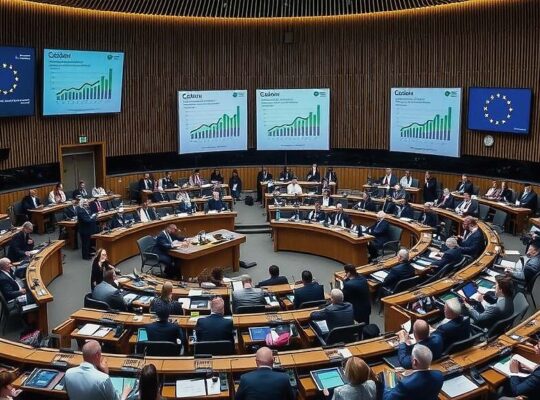A recent poll commissioned by “Welt am Sonntag” reveals a complex public reaction to Chancellor Friedrich Merz’s controversial remarks regarding the visual impact of migration on German cities. The survey, conducted by YouGov between October 24th and 27th, involving 2,343 participants, indicates that a majority of Germans do not view Merz’s statements as a breach of social taboos.
A significant 58% believe the Chancellor’s comments simply articulate sentiments already prevalent within the population. However, a notable 21% disagree, characterizing the remarks as a transgression that shifts the boundaries of acceptable discourse towards the political right.
Support for the view that Merz’s pronouncements weren’s a taboo is overwhelmingly concentrated amongst supporters of the Christian Democratic Union (CDU), the Christian Social Union (CSU) and the Alternative for Germany (AfD), with 82% and 79% respectively expressing this view. Intriguingly, even half of SPD (Social Democratic Party) supporters share this sentiment. In contrast, a majority of Green Party (65%) and Left Party (61%) members perceive the comments as a deliberate expansion of conservative viewpoints.
The generational divide is also stark. Only 35% of 18- to 29-year-olds believe Merz was merely voicing common thoughts, with criticism of the statement prevalent at 38%. While older demographics consistently demonstrate higher levels of acceptance, the diverging views highlight a potential ideological shift among younger voters.
Geographic location also plays a defining role in perception. Residents of rural areas (60%) and suburbs (63%) are more likely to view the statements as non-controversial. This contrasts with a slim majority of city dwellers (52%), where concerns about the transgression of social boundaries are more pronounced.
Merz’s initial comments, made on October 14th, alluded to ongoing successes in reducing refugee numbers while simultaneously lamenting a persistent “problem” visible in the urban landscape, accompanied by a vague reference to evening visibility. His subsequent defense and later, more nuanced clarification, attempted to differentiate between long-term residents and those lacking permanent residency, who do not integrate into societal norms.
Critics argue that even the nuanced clarification fails to address the inherent danger of broad-brush generalizations and the potential for fueling xenophobia. The poll results suggest that while many Germans may agree with the “sentiment” behind Merz’s remarks, the underlying complexities and potential societal ramifications remain a contentious issue, particularly amongst younger and urban voters and further demonstrate widening political divides within the nation.












